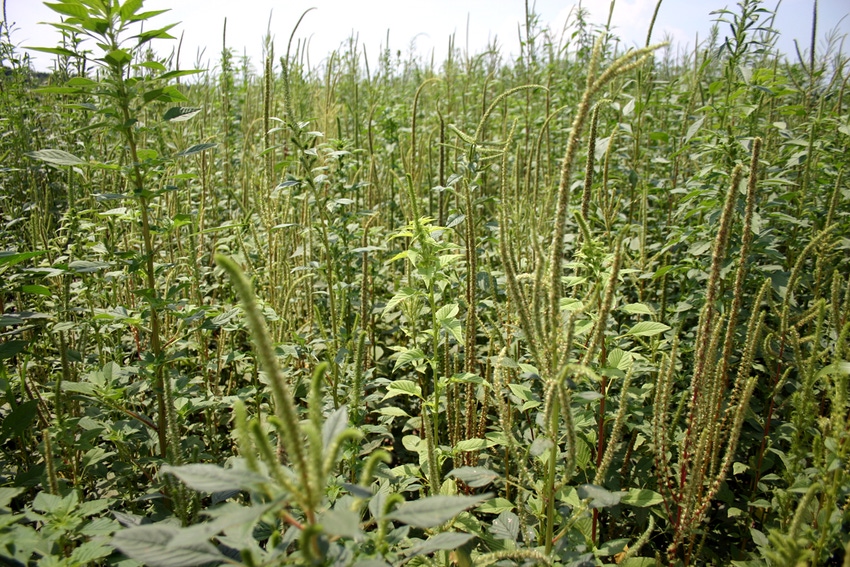May 24, 2011

My main concerns right now are barnyardgrass control in rice and pigweed control in soybeans. Most other weed problems we can catch back up with even if they have gotten out of hand. On those two, however, if they are not under control early, there is often a run-away situation.
With barnyardgrass in rice, do not mess around with it. Do not even think about using a lower rate of anything once barnyardgrass gets to the four-leaf stage. Some of the bigger hammers are Ricestar HT plus Facet or a generic, at 24 ounces plus a half-pound, Regiment, and then Clearpath or Beyond plus Facet in Clearfield rice. Some are even mixing some of the above in extreme situations.
The main thing is wait a week after application and if things are not dead, take the next step.
I have not received a lot of calls about aquatic weed yet, but as floodwater recedes I am sure there will be some. Londax, Grasp and Beyond are some of the better aquatic herbicides. In Clearfield rice, Newpath mixed with Londax or Grasp usually works well. In extreme aquatic situations, I go to Beyond plus Grasp in Clearfield rice.
I am getting a lot of burn-down calls on pigweeds in soybeans. Those always make me uncomfortable. You can get excellent control of small pigweeds with both Gramoxone and Ignite. You can also heat both of those up with some Sencor, Authority MTZ and, in some cases, Valor, Envive, etc. The problem is I am never quite sure where to draw the cutoff line on size.
If you are planting a conventional or Roundup Ready variety into the pigweeds you can not miss. Often you have already planted before you know you have missed. That is the definition of a train wreck.
If you are planting LibertyLink soybeans into that situation, burn down with Gramoxone or a Gramoxone mixture so you have all of the Ignite available to use in-crop.
Sometimes in any of the systems, there simply is no option but preplant tillage. Nobody seems to like that answer and I am often unsure where to draw that line.
As we get later into the planting season, the LibertyLink system has a lot of advantages in the pigweed problem fields. All of the technologies have a place and any of them can look good when things go well — regardless of the pigweed pressure. However, as we move to a time of the year when rainfall patterns to activate pre-emergence herbicides are typically more erratic, you simply have a lot more postemergence firepower in the LibertyLink system in fields where you need it.
Hopefully we will get some consecutive days where herbicides can be applied in all crops. Failure to be able to get things done in a timely manner is giving everyone fits so far this spring.
There are so many different situations in the field right now that it is hard to actually write about specifics. As I have stated in previous articles, the best thing is just to call with specific situations.
My phone and those of my former university counterparts are going crazy. Please call though, (501) 681 3413. I am often told, “I wanted to call you but know you are busy and know a lot of other people are calling so I didn’t.” Those of us who work in agriculture are supposed to be busy this time of the year.
If we did not like that we would be doing something else for a living. I actually enjoy the lifestyle of going extremely hard six and a half days a week for three months to have more easy days the remainder of the time.
I get a lot of calls from folks who are calling for someone else because that person felt uncomfortable calling me. If that works best, I am good with it. However, I won’t bite and I can assure you that I never feel like any question from a farmer is a “dumb question.” Sometimes I feel as if I have given a dumb answer, but there are no dumb questions!
More folks are emailing ([email protected]) and that is a good way to get me as well.
About the Author(s)
You May Also Like




